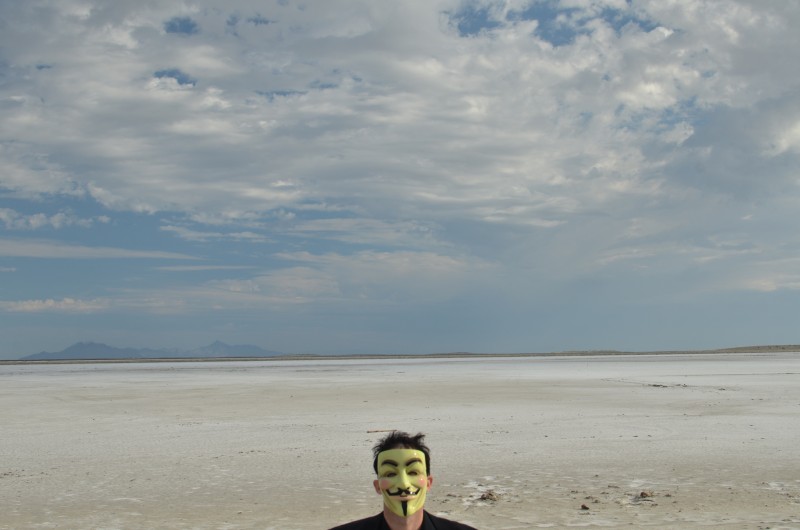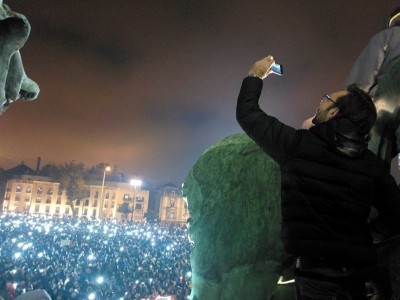Digital Citizen is a biweekly review of news, policy, and research on human rights and technology in the Arab World. Subscribe here!
Bahrain
On 11 August, Al-Wasat, the country’s only independent newspaper, resumed publishing following a government ban that lasted a few days. The newspaper was suspended by the Information Affairs Authority on 6 August for its “repeated dissemination of information that affects national unity and the Kingdom’s relationship with other countries”, according to the official news agency. Two days earlier, Al-Wasat received a warning from the information authority over an opinion piece entitled “And they will never approve of you”. In it, columnist Hani Al-Farden said that despite members of the opposition’s rejection of violence, they regularly face accusations of treason.
On 8 August, authorities at the Manama International Airport arrested interfaith activist Maytham Al Salman as he was returning from a trip abroad. Al Salman spent 12 hours at the Criminal Investigation Division, Economic Crimes Unit. He was charged with “inciting hatred against the regime”, a crime punishable by imprisonment of up to three years, over tweets tackling incitement to religious hatred in Bahrain.
Egypt
Egyptian President Abdel Fattah El-Sisi approved a new anti-terrorism law which criminalizes ‘false’ reporting on terror activities. The law prescribe fines ranging from 200,000 to 500,000 Egyptian pounds (25,500 to 64,000 USD) for publishing “false news or statements” about terror acts, or reports that contradict government accounts. The law also punishes by at least five years in jail those convicted of the “promotion, directly or indirectly, of any perpetration of terrorist crimes, verbally or in writing or by any other means.”
Jordan
Atef Al-Joulani, the Editor-in-chief of the Assabeel news portal, was detained Aug. 18 under Article 11 of the Cybercrime Law, for an article he wrote criticizing the government’s handling of a shipment of gas canisters. He was accused of violations under the press and publications law prohibition against publishing false news and for defamation.
Lebanon
Residents in Beirut launched the #YouStink campaign amid a trash crisis that became the tipping point for broader public dissatisfaction with political corruption and inaction by a government that has been unable to fill the presidency left vacant since last year. Thousands of protesters descended on downtown Beirut on Aug. 22 and Aug. 23, prompting confrontations with police forces that included water cannons, tear gas, and rubber bullets.
Libya
An undated video showing Saad Qaddafi—son of the deposed leader Muammar Qaddafi—blindfolded in Hadba prison as two other men are beaten was broadcast Aug. 2, prompting calls for an investigation into the abuse. Throughout the nearly 10-minute video men, some uniformed and others not, are shown and heard beating another man. At one point, Qaddafi is shown blindfolded before being asked if he preferred to be beaten on his back or his feet.
Morocco
A court in the city of Meknés ordered news website badil.info to suspend its activities for three months and fined its editor Hamid Mahdaoui 30,000 dirhams (US$3,000) for publishing a news report of a car bombing in the city. The story, which the government says was false, was published in January. A complaint was only filed in April by the local governor. In June, a court in Casablanca sentenced Mahdaoui to a four-month suspended jail term for publishing a report on the death of political activist Karim Lachkar while under police custody.
Authorities in Marrakesh summoned Samad Ayach from the Moroccan Association for Education and Youth (AMEJ) for investigation over trainings on the use of Free Press Unlimited’s StoryMaker App. Authorities accuse him of “destabilizing citizens’ allegiance to constitutional institutions”, “seeking to sow discord” and serving a “foreign agenda” by training youths to make stories that tarnish the image of the kingdom. Last June, police interrupted a training session by FPU and AMAJ and confiscated the smartphones of all participants, without a warrant. StoryMaker is a mobile application that helps journalists produce and publish stories.
Prosecutors in the city of Khenifra ordered the arrest of rap singer Al-Montakim (‘the avenger’), over his video clip ‘Korsika’, published on youtube on 4 July. In it, the singer describes life in his neighborhood and insults police.
Oman
Omani authorities arrested five human rights activists, known for their criticism of the government on social media. On 3 August, Salih Al-Azri, Ali Al-Muqbali and Talib Al-Saedi were arrested without warrant, and are being held incommunicado, according to the Gulf Center for Human Rights. A day later, blogger Muktar Al-Hanaei and activist Ahmed Al-Blushi were arrested as they were on their way to the UAE. The activists were however released about 20 days later, on August 24. In 2012, Al-Hanaei was sentenced to for allegedly insulting Sultan Qaboos by publishing “offensive writings and violating the information technology law.”
Qatar
Qatari poet Mohammed Ibn al-Dheeb Al-Ajami is being featured as August’s prisoner of conscience in a campaign called ‘their freedom their right’. Maharat Foundation, the Arabic Network for Human Rights Information (ANHRI) and IFEX launched the campaign in May to shed light on the many activists languishing in jail across the region for merely expressing themselves. Al-Ajami is serving a 15 year jail term over poems in support of the so-called Arab spring and critical of members of the Qatari ruling family and Arab governments. Al-Ajami recorded and posted some of his poems online.
Palestine
3G and 4G services may soon be launched in the occupied Palestinian territories, following a meeting of the Palestinian Authority Ministry of Information and Telecommunications with Israeli officials. Citing security and economic concerns, Israel has always refused to give Palestinian companies the frequencies needed to have 3G services or allow them to import 3G equipment.
Saudi Arabia
Saudi Arabia's supreme court is once again reviewing the case of blogger Raif Badawi, in prison since June 2012 for criticising the kingdom’s clerics on his Saudi Arabian Liberals blog. Badawi is serving a ten year jail term. He was also sentenced to 1000 lashes. On 7 June, the same court upheld Badawi’s conviction. He received the first round of 50 lashes on 9 January, sparking outrage and international condemnation. The cruel punishment has since been postponed on medical grounds. In meeting in Berlin on 10 August, German minister of foreign affairs Frank-Walter Steinmeier raised the case of Badawi with his Saudi counterpart Adel al-Jubeir. Al-Jubeir said that his government “would not tolerate any outside interference” in the case, and that the judiciary in his country is independent.
Syria
On 10 August, the Syrian regime released Mazen Darwish, a free speech advocate and founder of the Syrian Centre for Media and Free Expression (SCM). Darwish was arrested in February 2012 along with two of his colleagues, Hussein Ghreir and Hani Al-Zitani, in relation to their rights-defending activities, including the monitoring of online news and the publication of human rights reports.. Ghreir and Al-Zitani were released in July.
United Arab Emirates
The number of Facebook users under the age of 30 in the UAE continues to decrease. Between June 2010 and October 2014, their number decreased by almost 5 percent. Emergence of new social media platforms and privacy concerns could explain this shift, experts say, although this matches global trends.
In other news
- The Palestinian Center for for Development and Media Freedoms recorded 224 media freedom violations during the first half of 2015
- Rory Peck Trust and the Committee to Protect Journalists released the Syria Media Safety Resource, which provides security information for Syrian journalists.
- The Tactical Technology Collective has released ononymous.org, a collection of resources on digital safety.
- Digital rights and security researcher Ramy Raoof speaks to correspondents.org about government surveillance in Egypt and the region.
- Global Voices’ Ahmed Ould Jedou writes about the decline of Arabic language content
- Media and journalists in Tunisia are struggling to balance democracy and security, following terror attacks.
From our partners
- As it fights terror, the Tunisian government is cracking down on rights, reports Global Voices.
- EFF has announced its Pioneer Awards winners for 2015. This year’s winners include the University of Toronto’s Citizen Lab, and Anriette Esterhuysen, executive director of the Association for Progressive Communications (APC).
Upcoming events
- The Stockholm Internet Forum, October 21-22, Stockholm, Sweden
- Middle East Cyber Security Summit, September 15-16, Muscat, Oman
- Middle East Info Security Summit, October 12-13, Cairo, Egypt
- FrontLine Defenders’ 8th annual Platform for Human Rights Defenders will take place November 4-6 in Dublin.
Digital Citizen is brought to you by Advox, Access, EFF, Social Media Exchange, and 7iber.com. This month’s report was researched, edited, and written by Afef Abrougui, Jessica Dheere, Michael Fuchs, Courtney Radsch, Thalia Rahme, and Jillian C. York, and translated into Arabic by Lara Al Malakeh and French by Thalia Rahme.




